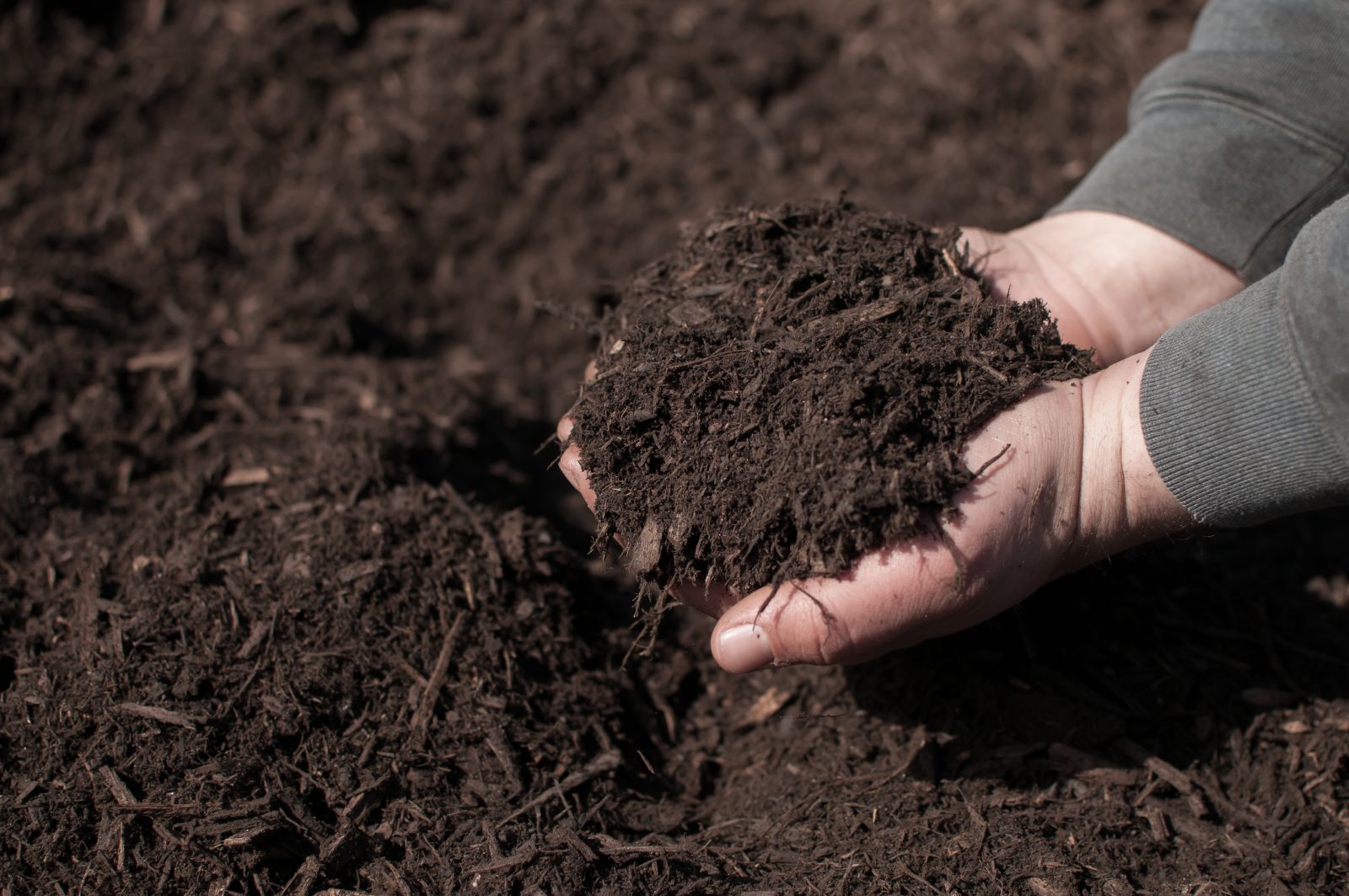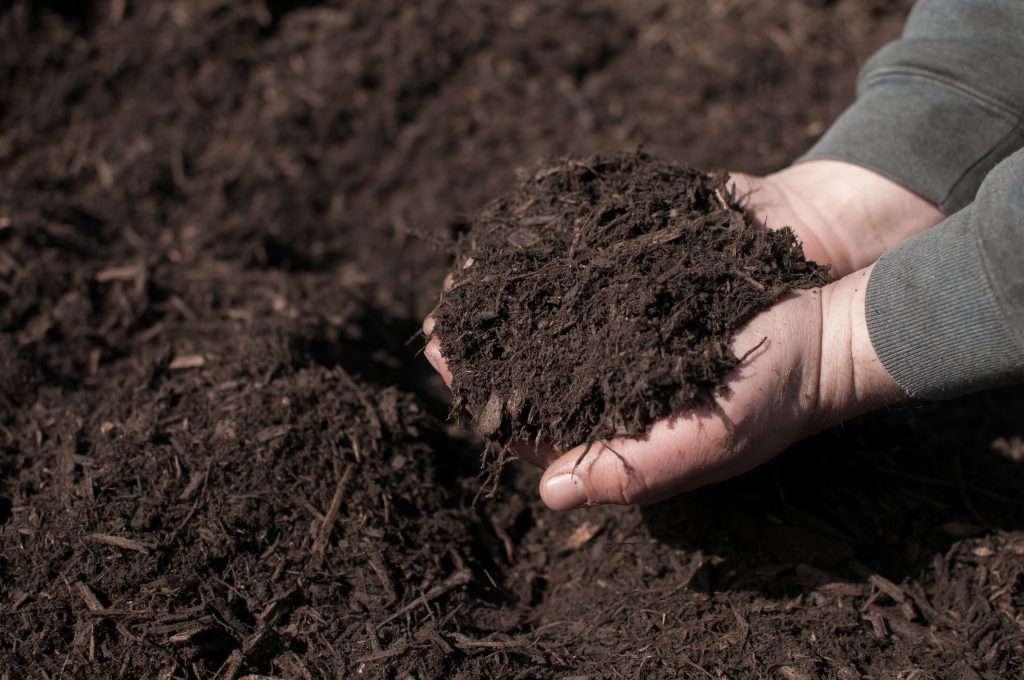Mulch vs. Cobblestone (The Groundcover Battle for Garden Supremacy)


When it comes to landscaping and gardening, choosing the right groundcover is essential for the health and vitality of plants. While options like gravel or cobblestone may seem appealing for their durability and low maintenance, there are several drawbacks to consider, and one very good alternative.
By Scott Cohen
Ground cover matters, probably more than you think. While many clients opt for cobblestone for it’s appearance and ease of maintenance, I believe there is a much better choice — mulch!
Using mulch, particularly shredded wood fiber mulch, offers numerous benefits that can greatly enhance the overall health and aesthetics of your garden.
The advantages of using mulch as groundcover in your garden are abundant. Its ability to suppress weeds, control erosion, retain moisture, and enrich the soil makes it a superior choice over gravel or cobblestone. With proper maintenance and regular application, mulch creates a nurturing environment for plants, supporting their growth and vitality.
Embrace the benefits of mulch in your garden and reap the rewards of a healthy and beautiful outdoor space. Let’s explore why mulch is the superior choice for groundcover when compared to gravel or cobblestone.
Weed Abatement
One of the significant advantages of using mulch in your garden is its ability to suppress weeds. Mulch forms a protective layer over the soil, blocking sunlight and preventing weed seeds from germinating. This natural weed barrier saves you valuable time and effort spent on tedious weeding tasks, allowing you to enjoy your garden more and worry less about unwanted intruders.
Erosion Control and Moisture Retention
Another essential benefit of mulch is its ability to control erosion and retain moisture. When heavy rain or irrigation occurs, the mulch helps slow down the flow of water, preventing soil erosion. Additionally, mulch acts as a protective barrier, reducing water evaporation from the soil. By retaining moisture, mulch helps plants stay hydrated, reducing the need for frequent watering and conserving water resources in the process.
Nutrient-Rich Soil
As mulch breaks down over time, it contributes to the improvement of soil quality. As it decomposes, mulch releases essential nutrients into the soil, enriching it and creating a fertile environment for plants to thrive. The continuous addition of organic matter from the mulch enhances the soil structure, promotes beneficial microbial activity, and supports the growth of healthy roots. This natural process contributes to the long-term health and sustainability of your garden.
Seasonal Maintenance
Proper maintenance is crucial for the longevity of your garden. Reapplying mulch every fall and spring is a recommended practice to ensure its effectiveness. By replenishing the mulch layer, you maintain its weed-suppressing properties, promote moisture retention, and provide a steady source of nutrients for your plants. This regular maintenance routine helps create an optimal environment for plant growth and vitality.
Contrasting Negative Effects of Gravel or Cobblestone
While gravel or cobblestone may have their uses, they present some distinct disadvantages when used as groundcover in a garden. These materials can absorb and retain heat, causing the surrounding area to become excessively hot, which can harm plant foliage. In contrast, mulch acts as a natural insulator, helping to regulate soil temperature and protect plants from extreme heat.
Regional Considerations
When considering groundcover options, it’s essential to account for the specific climate and environment of your location. In a typical California landscape, where water conservation is a priority, the Department of Water and Power recommends mulching as an effective strategy for water savings and general plant health. Rocks or gravel may be more suitable for specific situations, such as cactus gardens, where arid conditions and low water requirements are the norm.
At The Green Scene, we always recommend the use of mulch in our landscaping projects. We understand the numerous benefits it provides. By applying mulch after planting flower beds, we ensure that our clients’ gardens have the best chance to thrive and flourish.
Scott Cohen is a “garden artisan” and president of Green Scene Landscaping & Pools, a watershape design and construction firm based in Chatsworth, Calif. A widely published author and popular speaker, Cohen is known for his gardens that combine outdoor living with inspired artistic details.
Photo by Christopher Lyzcen | Shutterstock










